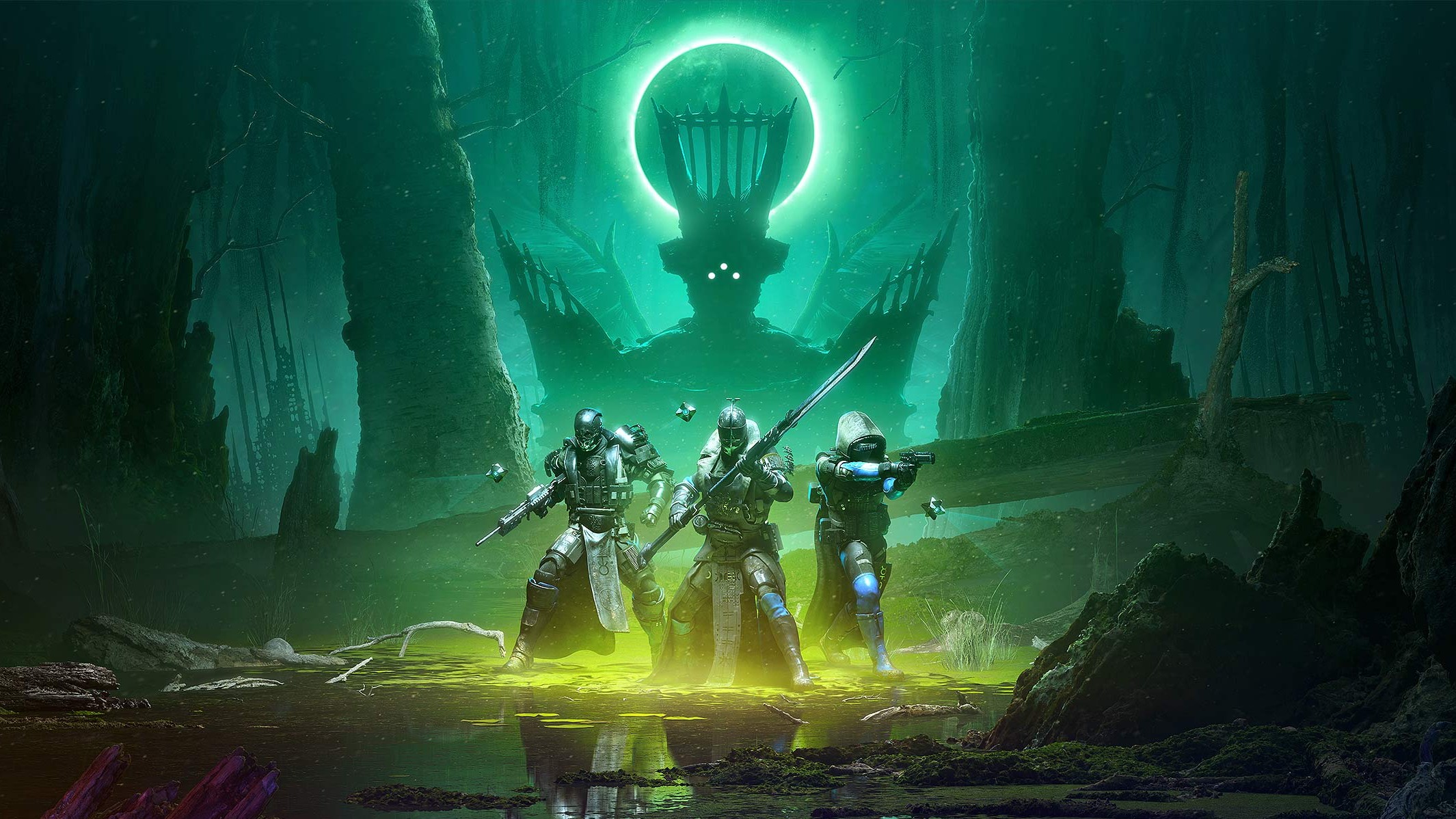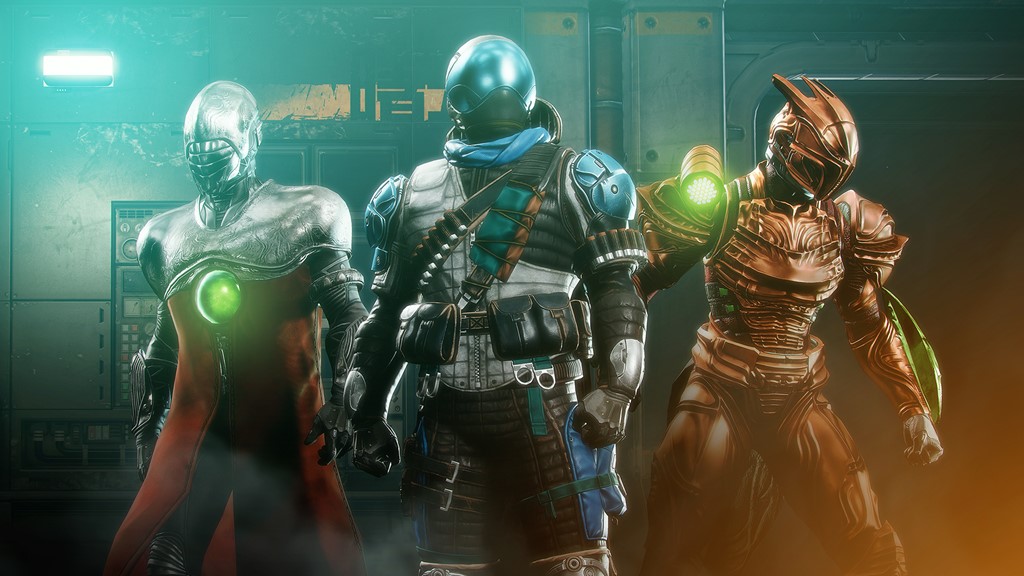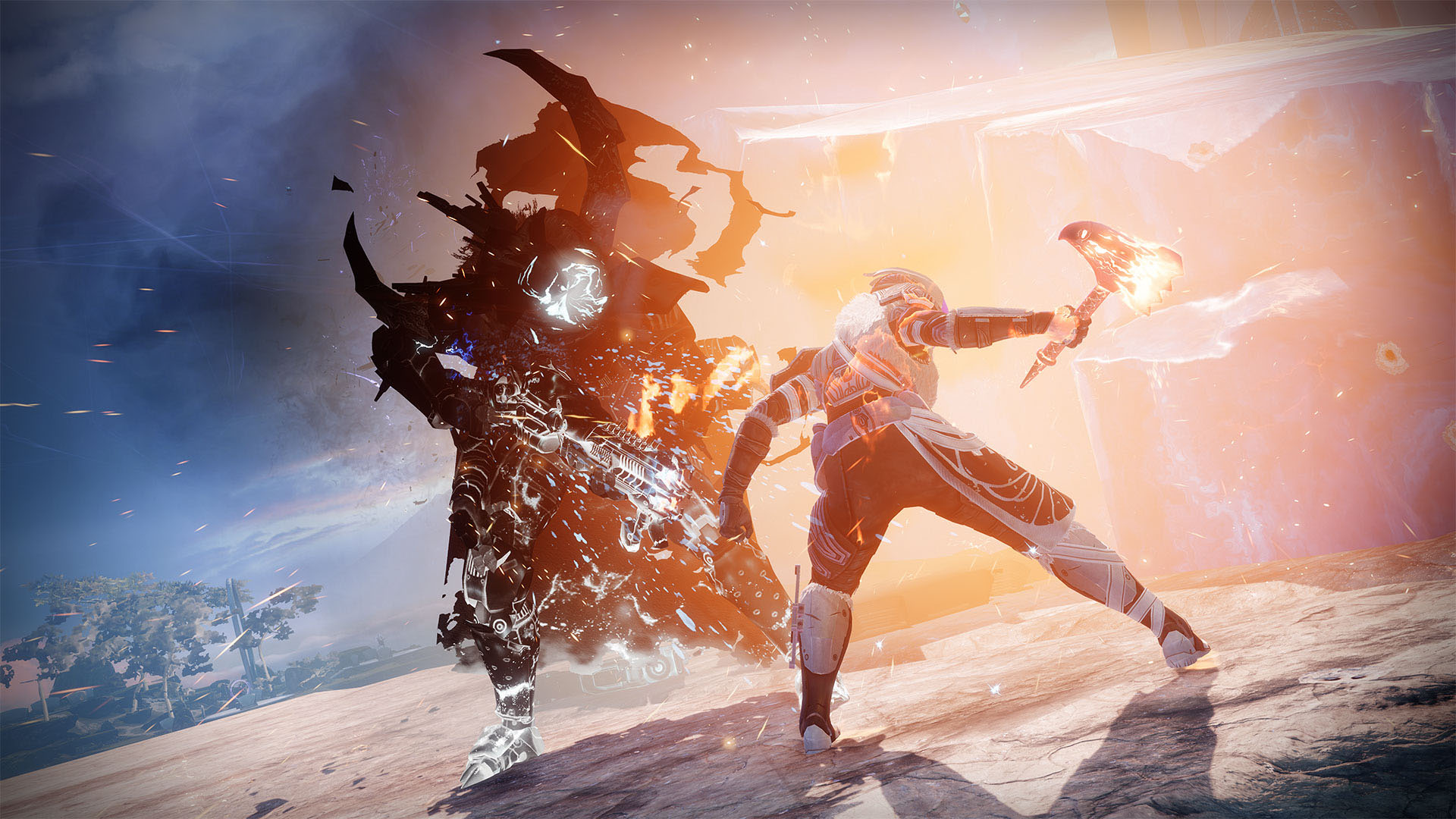So if it's not about exclusivity, why exactly did Sony buy Bungie?

When the news broke that Sony was throwing a $3.6B bag at Bungie, in the middle of our weekly planning meeting I might add, my initial reaction was surprise followed by quite a bit of confusion. That feeling only grew as I read the statement and FAQ put out by Bungie. Both of these double down on the notion that Bungie will remain almost entirely independent, Destiny 2 will continue to be published on other platforms (PC, Xbox and—lol—Stadia) in perpetuity, and even that Bungie's future projects won't now become PlayStation exclusives.
The studio even goes so far as to ask (itself) that question explicitly. To which it answers: "No. We want the worlds we are creating to extend to anywhere people play games. We will continue to be self-published, creatively independent, and we will continue to drive one, unified Bungie community." Okay. Very good news if you're a current Xbox or PC player—or, indeed, an executive at Microsoft—but, if that's the case, why buy Bungie if you're not going to publish what it makes exclusively?
Bungie is the creator of one of the world's most popular sci-fi universes, which is ripe to make the jump to other mediums.
Part of the answer lies in this line: "[Sony Interactive Entertainment] believes that game worlds are only the beginning of what our IPs can become." The calculus here becomes relatively simple. Sony is a multimedia behemoth that owns a massive movie studio (unlike Microsoft) but has yet to make a substantial streaming play. Bungie is the creator of one of the most popular sci-fi universes in the world, which is absolutely ripe to make the jump into other mediums. The content maths checks out.
Note also that the mood music around gaming crossover content has shifted thanks to non-shit shows like The Witcher, Arcane and Castlevania. Who knows how Paramount's Halo show will eventually be received, but—Cortana redesign aside—it's further sign that the content conglomerates see gaming copyright as very fertile ground. When it comes to these things, sci-fi is also seen as a relatively good bet. Another company sat on a vast pile of grimdark fiction is Games Workshop, which is in the early stages of making a show based on Eisenhorn, a Warhammer 40,000 Inquisitor who's previously starred in multiple books.

Projects like these take years of course, so don't expect to binge an animated version of Destiny's Books of Sorrow anytime soon. But Bungie won't be starting completely from cold. Having announced its intention to move into other media last February, in September of the same year it listed a job for a Senior Executive, Development (Film, TV, Transmedia). That role involved extending Destiny "into new categories including TV, films, books, comics and audio formats."
The description read: “As a storyteller and “guardian” of the Destiny IP, you will identify, select, guide, collaborate, and provide feedback to third parties and partners enabling them to tell additional myths in the Destiny universe.” We now know that Sony will be that partner. Honestly, once you take platform exclusivity for games off the table, it looks like a good fit. The fact that Bungie is going to be run directly by SIE rather than PlayStation Studios also underlines that this is a deal about taking those properties beyond the current playerbase.
Beyond Destiny
So what else does the thick end of four billion bucks buy you these days? Don't forget that Destiny isn't the only iron in Bungie's fire. In 2019, the studio committed to releasing at least one non-Destiny game before 2025 as part of its aim to become "one of the world's best entertainment companies." Bungie CEO Pete Parsons revealed in 2020 that Bungie had been working on multiple new games for the past three years; a year later, Parsons recommitted to getting at least one of those out before 2025, saying Bungie wants to "tell new stories in the Destiny Universe, and create entirely new worlds in to-be-announced IPs."
Those games remain unannounced, but thanks to more job listings we have some insight into what's being worked on behind in Seattle. In April 2021 we discovered that Bungie is developing a new game focused on competitive PvP that was specifically not Destiny 3, but "a new franchise at Bungie." The following month, another listing appeared for a "multiplayer action game" that was "in incubation," which is to say very early along in the process.
The most intriguing listing, though, was posted a year prior to all that. It too was apparently still in the incubation stage, but while the first two games sounded very Bungie-like, this one definitely did not. "Would you like to work on something comedic with lighthearted and whimsical characters?" the listing asked. "Do you think a lot about how art impacts gameplay, how character design can enable fan cosplays, or how character poses and environments speak to different cultures all around the world?" Sounds more like Insomniac than Bungie.

It's probably safe to say that the project to emerge first will be the one that's currently being directed by Christopher Barrett. He was the creative lead on Destiny 2 during the excellent Forsaken expansion era, but subsequently moved to a game director position on an unannounced project. Barrett was previously an art director at Bungie, and having interviewed him around the time Destiny 2 made the jump to PC I came away very impressed. We can safely say the Sony suits will have kicked the tires of all these projects before throwing down the money for Bungie, and felt likewise.
We might also consider whether Destiny 2, and any of these other unannounced games, might make a good fit for any Game Pass rival that Sony ends up launching. It certainly makes more sense now why Destiny 2 disappeared from Game Pass in December.
Shared worlds and family matters
What we can probably assume is that all the unannounced projects fit the extended universe treatment that both Sony and Bungie has in mind for its newly minted partnership. Despite the fact Bungie has previously struggled to free itself from the corporate yoke of first Microsoft and then Activision, being bought by another mega publisher still makes plenty of sense for the studio. For one thing, everyone gets paid. Bungie will also benefit from the long-term security—and additional resources—that comes from being in bed with one of the Big Beasts. But also, from the time I worked on the Official PlayStation Magazine, I remember Sony's first and second-party studios have a good track record in informal technology sharing. Being able to swap war stories with the likes of Insomniac, Naughty Dog and Sony Santa Monica will have its benefits.
Sony is getting access to unbelievable experience and talent at Bungie. Creators of Halo and Destiny ⚡️⚡️ Shortsighted to look at just IP, you get so, so much more with all that experience. Very excited for my friends at Bungie and glad Destiny is staying multi platform.January 31, 2022
Fundamentally, the Sony acquisition will help drive Bungie's goals beyond games. In an interview with GamesIndustry today, Parsons confirmed that Bungie's plans continue to include broadening its properties to movies, television, and other media, and being a part of Sony will accelerate that process.
"You can't help but look at Sony's accomplishments, not just as a great platform, and having easily some of the best development teams in the entire world," Parsons said. "But also one of the greatest entertainment companies in the world. We saw this great opportunity to build—not just Destiny, we're working on more than Destiny—these great interactive experiences, which we think we're good at. But also being able to explore these worlds even more."
It's going to be less about specific platforms for media giants, and more about the library of universes they own.
Perhaps some external oversight will also help Bungie with its ongoing effort to improve corporate culture at the studio. In December Parsons publicly apologized after an IGN report detailed failings related to toxicity and sexism at the studio. That work will need to continue behind the scenes. For now, though, and as with the Microsoft-Activision Blizzard takeover, players shouldn't expect to see major changes in the near to medium term.
Lest we forget, it was way back in 2018 that NetEase invested the (what now looks paltry) sum of $100m into Bungie to build "new worlds". But here I am, still waiting to play Destiny 2's The Witch Queen expansion next month, and frankly feeling good about it. I'm also very relieved that the PC version isn't going away anytime soon.
On a long enough timeline, it's going to be less about specific platforms for these media giants, and more about the library of universes each of them owns. Here, there's no argument: Bungie makes really great universes.
from PCGamer latest https://ift.tt/d5AfVOyB1
via IFTTT
Comments
Post a Comment